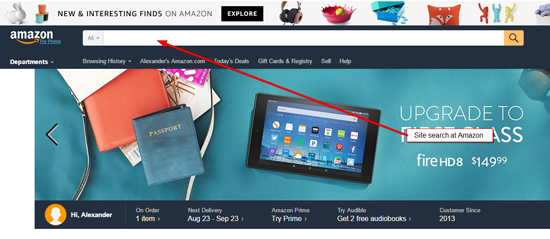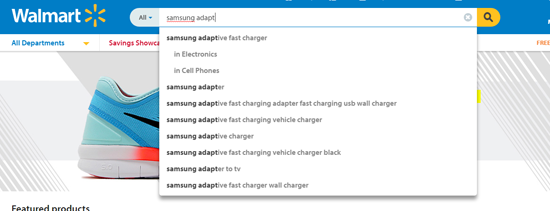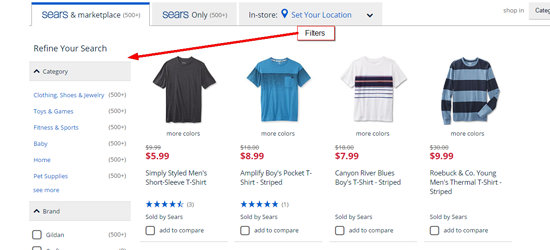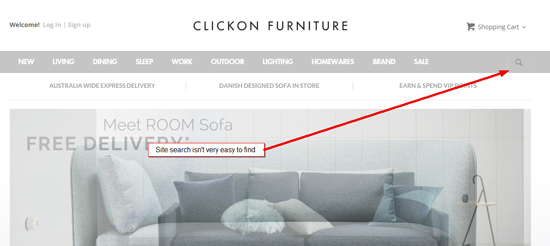101: The Right Site Search for Online Stores

Do you know what must-have online store functionality is used by 43 percent of visitor and provides 1.5-3 times better conversion? Your guess is right, it is site search.
In this post you can find what makes great ecommerce site search.
What is Site Search and Why Should I care?
Site search, or internal site search, is functionality visitors use to find content related to their goals. It is different from search engines like Google that index the Internet; it's a search of a website's content.

The bigger an online store, the more important good site search is, because it is the most direct path to a product or content.
There are number of studies that prove the importance of site search:
- Forrester Research in its "Must-Have Ecommerce Features" report found that 43 percent of visitors navigate straight to the search box and searchers are 2-3x more likely to convert compared to non-searchers.
- A Screen Pages (a UK-based agency, specializes in Magento) report based on stats from 21 websites indicated that visitors who use search convert 1.5 time better
In addition to conversion improvements, site search helps merchants understand what customers want/need. By tracing search queries, especially with zero products found, retailers can find out what products are in demand and use that information for planning purposes.
What is right ecommerce site search?
So site search is important, but what is the right site search? What is the difference between decent and poorly done search?
To get answer to this question, let's explore a comprehensive study published by Baymart Institute, which reviews site search facilities of 50 leading U.S. retailers. The top recommended best practices of great internal search are below:
Search by product name and model number
Make sure searching by product name and model number is not only doable, but also ideally your search engine is smart enough to forgive a typo or two and still display references to right products.
Smart work with terminology/jargon and synonyms
We use different words to refer to the same objects. For example "laptops" can be also called "notebooks," so if you use one term on the website, your customer uses another in search and if your search isn't smart enough - you may lose a sale.
Correct work with special symbols
A good example of this is (13 " laptop), which a person may be referring to as a (13 inch laptop). Smart search understands this.
Understanding abbreviations
For example some people type "MFC" for multi-functional device or "PC" for computer.
Auto-completion and auto-suggestion
Typical problems with auto-suggestions are:
- Dead ends (term suggested have not linked to any page);
- Ambiguous suggestions, making users unsure, which one to follow. An example there was suggestions of "samsung adaptor" and "sumsung adapter" when user started to type "samsung adapt";
- Redundant and duplicate suggestions. It happens particularly when auto-suggestion logic is based on past searches or when a user types in the same keyword several times.

Employ faceted search, especially if you have an extensive catalog
Faceted search is the ability for the user to filter and sort search results based on set of certain search parameters (like product attributes - price, color, size, etc.). As with auto-completion/suggestion it is important not just have it, but implement it right, so it helps your users rather than confuse them.

Breadcrumbs
Have meaningful breadcrumbs when users come from search results page. Ideally there should be both history and hierarchical based breadcrumbs, so users can both return to search results and go up to the store hierarchy from there.
Search box placement

Place your search box prominently, it shouldn't be hidden somewhere in the far corner and require complex activation (like a popup).
Search results page
- Results should highlight search terms and provide users with enough information to understand what the results are
- For products, it is good to have the product image/thumbnail displayed
- For large websites, use faceted navigation to filter the results;
- Include sorting and pagination if there are more than one page of results. About the Author
Alexander Levashov (@LevashovBiz) is the managing director of Magenable, an ecommerce consultancy based in in Melbourne, Australia that focuses on the Magento ecommerce platform.







